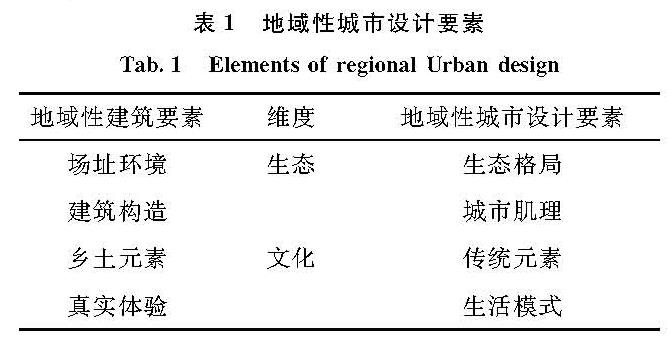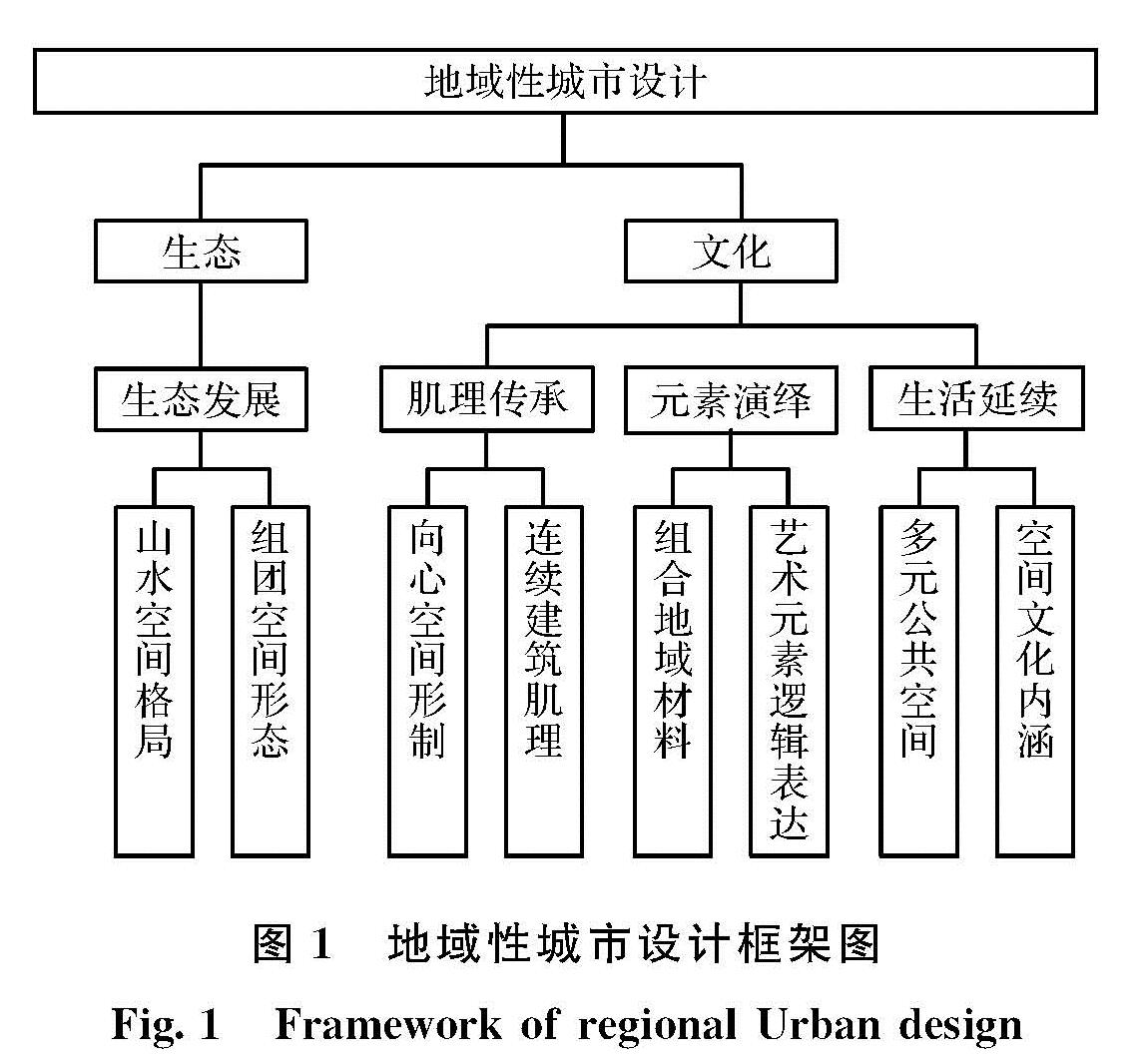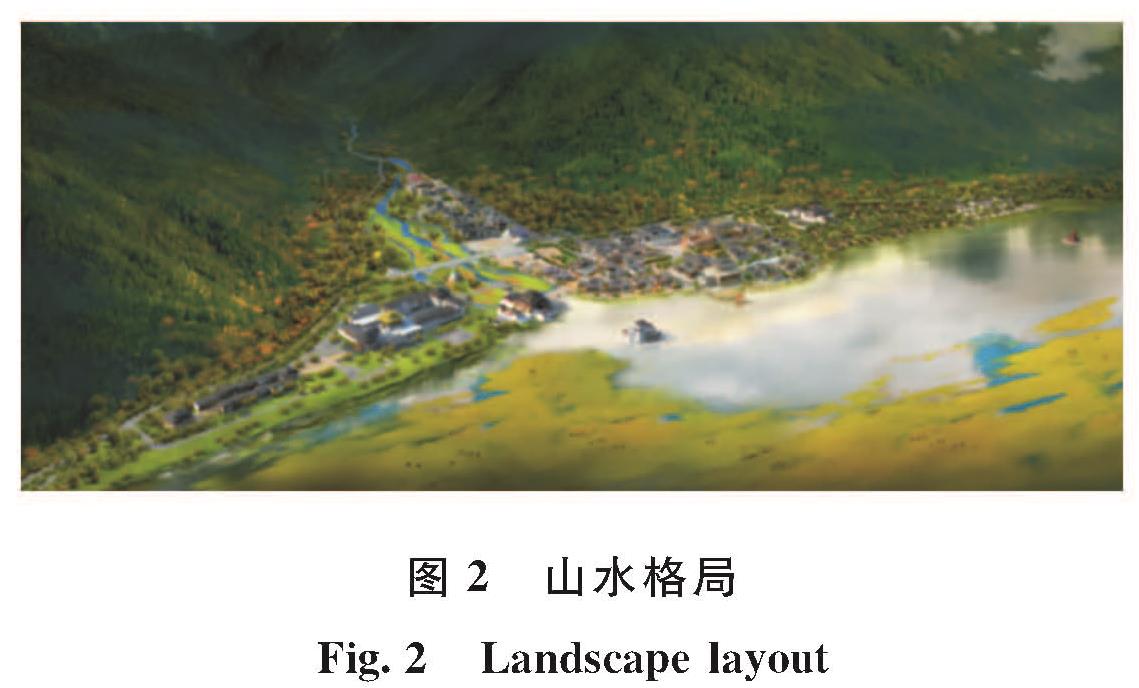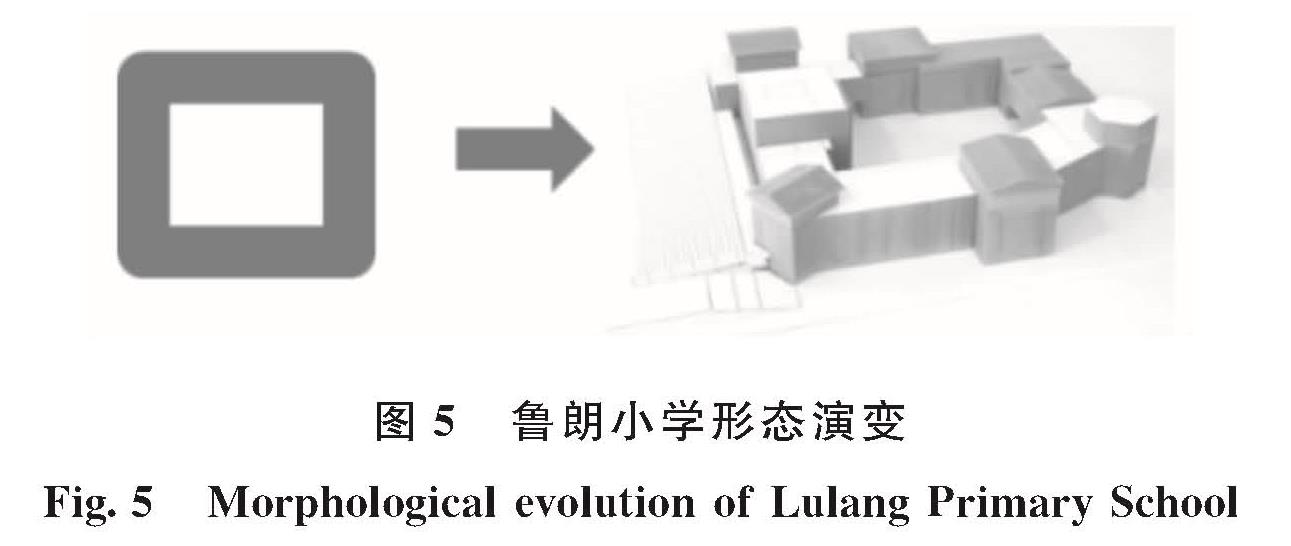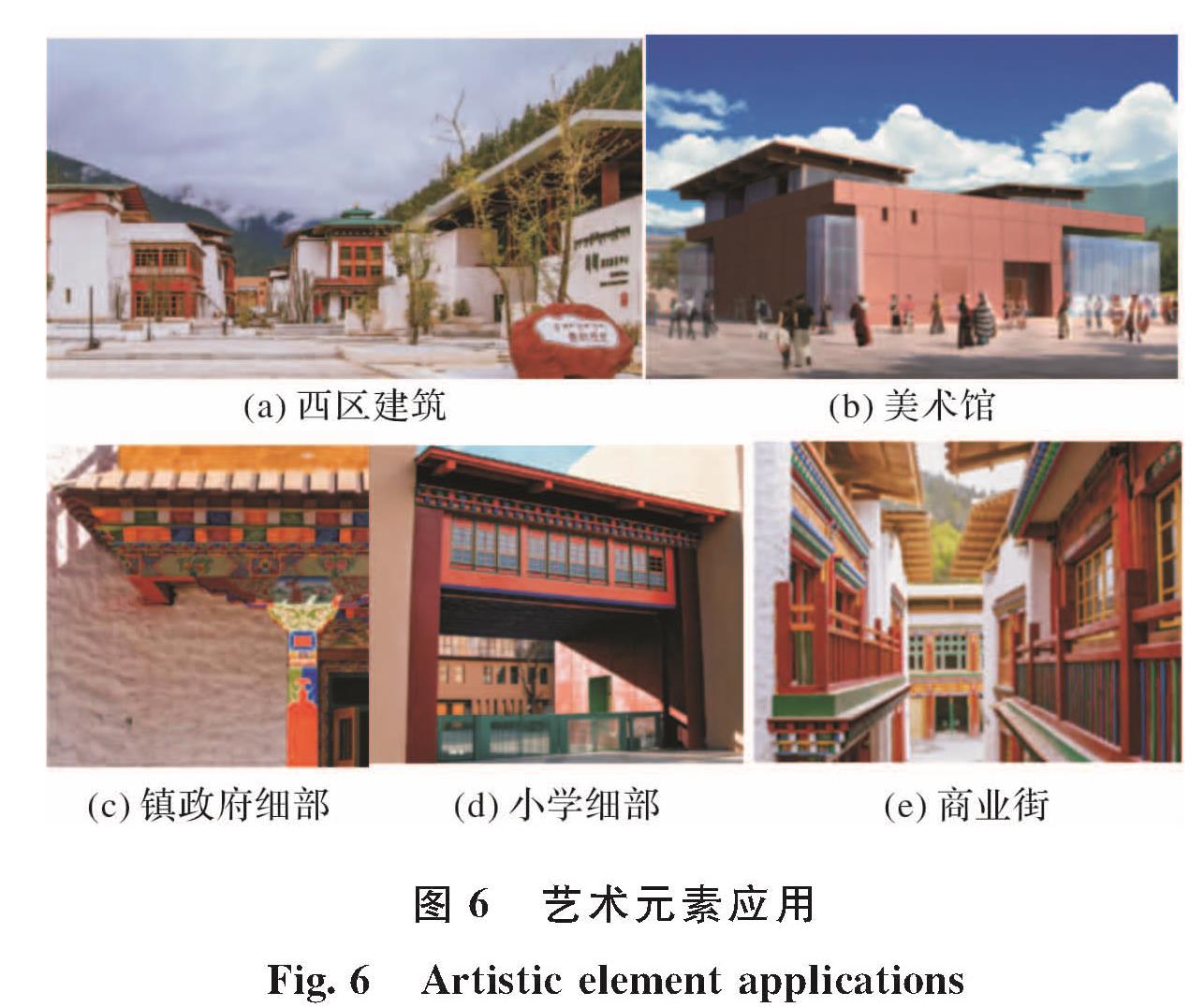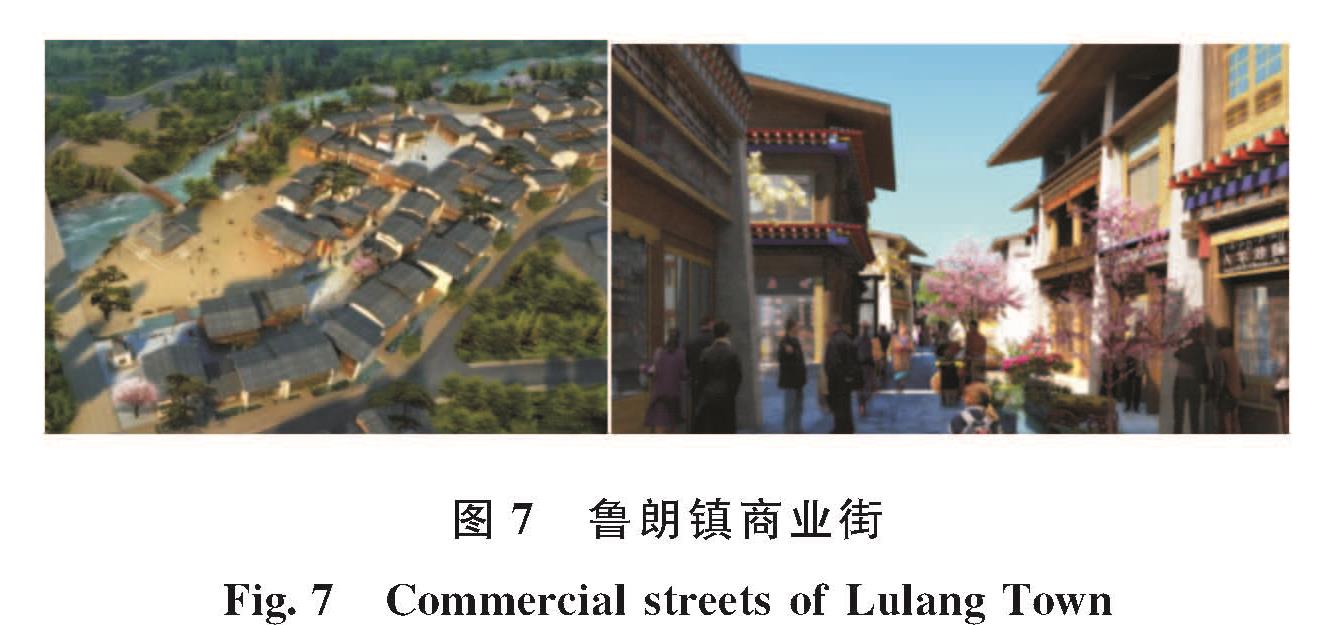第一作者:陈可石(1960-),男,教授,博士生导师,主要从事城市设计新理念与新方法,城市设计与古镇复兴,可持续的绿色城市设计.E-mail:chenks@pkusz.edu.cn
(1.北京大学深圳研究生院 城市规划与设计学院,广东 深圳 518055; 2. 深圳市宝安规划设计院,广东 深圳 518133;3. 四川省城乡规划设计研究院,四川 成都 610081)
(1.School of Urban Planning and Design, Peking University Shenzhen University Graduate School, Shenzhen 518055, China;2. Shenzhen Baoan Planning and Design Institute, Guangdong Shenzhen 518133, China;3. Sichuan Institute of Urban Planning and Design, Chengdu 610081,China)
DOI: 10.15986j.1006-7930.2019.03.013
备注
第一作者:陈可石(1960-),男,教授,博士生导师,主要从事城市设计新理念与新方法,城市设计与古镇复兴,可持续的绿色城市设计.E-mail:chenks@pkusz.edu.cn
在西藏新型城镇化背景下,作为经济增长极的特色小镇快速发展.引入地域性理念,以小城镇为整体,从生态和文化维度构建地域性城市设计要素,从生态格局、城市肌理、传统元素、生活模式这四个层面提取“地域基因”,提出传统模式与现代城镇融合的小城镇理性扩张策略,并结合鲁朗国际旅游小镇总体设计实践具体阐释,以期为其他小城镇地域特色打造提供借鉴.
Under the background of new urbanization in Tibet, it has developed rapidly as a characteristic town with economic growth pole. This paper introduces the concept of regional nature, takes small towns as a whole, constructs the elements of regional urban design from the ecological and culture dimensions, extracts the regional genes from the four levels of ecological pattern, urban texture, traditional elements and life mode, and puts forward the rational expansion. Strategy of small towns with the international tourism Town overall design practice specific interpretation, in order to provide reference for the regional characteristics of other small towns to create.
引言
2017年全国城镇化率为58.52%,而西藏地区城镇化率仅为30.9%,城镇化水平较低.由于藏区地广人稀、居民点散布、城市数量少等特征,西藏采用完善中心城镇功能增强其辐射作用的新型城镇化发展模式,其中一项重要举措为建设一批有潜力的小城镇培育新的经济增长极[1].十九大提出乡村振兴战略,特色小城镇是落实乡村振兴、城乡融合的重要载体.在此背景下,西藏小城镇迎来新机遇.然而纵观城市发展史,甚至是西方城市在快速发展时期,普遍出现“特色危机”[2].因此在西藏小城镇迅速发展时期,如何彰显地域文化风情是规划设计中的重点问题.
城市地域特色的理论研究主要包含三个层面,微观层面为城市要素研究如单体建筑或特定区域建筑、 特定场所的地域景观[3-5],中观层面为城市重点片区的研究如街区、交通站点等片区的城市设计地域策略探讨[6-7],但是如果不从城市整体这个地域层级去探讨城镇特色,仅仅从城市单体要素、片区层面研究是片断化的和孤立的.城市整体层面研究如整体划布局、风貌[8-9]局限于单个要素,而城市是多个要素集合的复杂系统.并且现有研究主要关注大中城市的空间特色问题,对于小城镇的研究不够,在新型城镇化背景下小城镇快速扩张如何延续地域特色缺乏理论指导.基于此,本文以西藏第一批特色小城镇鲁朗国际旅游小镇为例,引入地域性视角,系统地探讨小城镇地域特色构建途径,以期为小城镇建设提供方法借鉴.
1 关于“地域性”视角下的小城镇城市设计
1.1 地域性视角产生的背景及内涵“地域性”一词起源于“地域主义”,地域主义通过打造地域多样性来回应全球化的发展.地域主义发展经过三个阶段:①浪漫的地域主义——起源于18—19世纪英国的风景画造园运动,通过直接使用地方元素创造人们熟悉的景观,这是一种情感化的地域主义; ②芒福德地域主义——1924年芒福德提出了相对性的概念,认为地域主义在地方与全球之间不断交流和沟通[10]; ③批判的地域主义——20世纪80年代美国建筑历史学家提出“批判的地域主义”概念,强调根植于地域环境与场所的再造,设计与历史文脉、自然地理环境结合,反对脱离时代与功能的刻意模仿及片断化的符号式设计,在延续城镇地域特质的同时不断汲取优化的思想理念与技术手段的再创造[11].本文“地域性”就是批判性地域主义的概念,在现代主义思想下对传统的发展和延续.
1.2 地域性视角与小城镇设计的融合小城镇一般包括建制镇和集镇,是一个复杂的系统,在功能性质、规模上有别于城市[12].特色小镇为具有产业定位、文化内涵、旅游和社区功能的空间平台,不同于行政建制镇和产业园区的创新创业平台[13].本文中的“小城镇”概念更为广义,包括行政区划的建制镇和特色小镇的概念.西藏位于我国西南边疆,拥有多样的自然景观、丰富的民族文化、悠久的历史,独特的地理环境和社会文化孕育了西藏富有民族特色的小城镇.长期以来,西藏地区由于交通闭塞城镇发展缓慢,西藏小城镇特色保存较好.相对于大城市,地域特色是西藏小城镇发展的核心竞争力.
将地域性与小城镇设计结合,系统地探讨城市设计延续地域特色的途径.通过解构地域性城市设计要素,挖掘设计要素与城镇物质空间的逻辑映射,按照这种逻辑建设具有地域特征的现代城镇.借鉴批判地域主义建筑思维,地域性建筑要素可分解为地形、地貌外部自然环境因素,注重建筑与自然环境的对话; 建筑的场所精神,回应环境的建筑结构、乡土符号的转化应用,具有地域视觉触觉真实体验的建筑空间[11,14].因此地域性城市设计要素从生态和文化方面探讨构建(如表1).
生态维度需要处理城市与自然的关系,体现为城市的生态格局; 文化维度应探讨城市物质空间如何传承地域文化,从体现城市结构特征的城市肌理、反映传统城市风貌特征的文化元素、关注居民日常生活体验的生活模式这三个层面来延续地域文化特色.
2 地域性视角下的西藏小城镇设计框架
3 西藏鲁朗国际旅游小镇总体城市设计策略
4 结语
在国家新型城镇化加速发展的背景下,特别是地域特色浓厚的西藏小城镇快速发展阶段,提出地域性城市设计理念,尊重传统城镇自然生态观、传统城镇肌理、特征元素以及生活方式,从这四个层面构建地域性理念下小城镇为整体的全要素体系,详细探讨了传统城镇模式在现代城市设计思想下融合发展方法,从而真正实现小城镇由快速功能性扩张到根植于地域特征的文化性生长.对于我国众多小城镇地域特征引导下的扩张提供有益借鉴.
- [1] 《西藏自治区新型城镇化规划( 2014—2020年)》[R]. 西藏自治区:西藏自治区发展和改革委员会,2015.
- [2] 薛立新, 龙彬. 从社会发展角度认识城市特色危机[J]. 城市规划, 2012(4): 37-41.
- [3] 王毅. 从被动到主动的地域建筑——黄龙瑟尔措国际大酒店设计[J]. 建筑学报, 2013(5): 23-25.
- [4] 陈昌勇, 肖大威. 以岭南为起点探析国内地域建筑实践新动向[J]. 建筑学报, 2010(2): 68-73.
- [5] 黄生钱, 秦华, 辛儒鸿. 山地滨水公园设计的地域性营造——以重庆金海湾公园设计为例[J]. 规划师, 2015, 31(12): 78-82.
- [6] 李晖, 王静. 基于地域特征的城市设计方法探索——以丽江市福慧路城市设计为例[J]. 规划师, 2011, 27(11):47-51.
- [7] 邓明莉,丁力敏. 城市轨道交通站点地区地域性设计策略——以青浦区外青松公路地铁站周边地块城市设计为例[J]. 规划师, 2014(s4): 15-19.
- [8] 荣丽华, 吕慧芬, 杜明凯. 彰显藏区地域特征的高原小镇总体布局规划——以西藏日喀则地区萨嘎县加加镇为例[J]. 规划师, 2013, 29(3): 35-38.
- [9] 高敏. 总体城市设计中基于地域特征塑造风貌特色[D].天津:天津大学, 2014.
- [10]亚历山大·楚尼斯, 陈燕秋, 孙旭东. 全球化的世界、识别性和批判地域主义建筑[J]. 国际城市规划, 2008, 23(4):115-118.
- [11]沈克宁. 批判的地域主义[J]. 建筑师, 2004(5):45-55.
- [12]张研.陕南地区特色小城镇形象营造方法初探[D]. 西安: 长安大学,2010:21-27.
- [13]赵佩佩, 丁元. 浙江省特色小镇创建及其规划设计特点剖析[J]. 规划师, 2016(12).
- [14]朱亦民. 现代性与地域主义——解读《走向批判的地域主义——抵抗建筑学的六要点》[J]. 新建筑, 2013(3).
- [15]童明. 城市肌理如何激发城市活力[J]. 城市规划学刊, 2014(3):14-14.
- [16]石泰安, 耿昇. 西藏的文明[M].北京:中国藏学出版社, 2005.
- [17]朱小雷. 一种地域性城市设计的研究思路[J]. 城市规划, 2002, 26(9):72-76.1.
鲁朗位于西藏自治区东南部的林芝县,318国道横穿境内,平均海拔3 385 m,典型的高原温带温润季风气候.鲁朗小镇坐落于一片典型的高原山地草甸狭长地带,雪山、森林、草原、花海、溪流、牧场、田园风光等各种景观并存; 建筑风貌、生活模式、宗教仪式和传统节庆等颇具地方特色.鲁朗国际旅游小镇是广东省重点援藏项目,同时也是西藏自治区第一批特色小镇,旨在成为藏东南旅游集散中心.针对基地优美的自然环境和独特的藏文化,鲁朗国际旅游小镇采用地域性理念,通过对传统城镇提炼,从“生态、肌理、元素、生活”四个层面构建具有地域特色的现代小镇(如图1).
3.1 生态维度3.1.1 山、城、水空间格局鲁朗小镇自然条件优越,西南方向为天然林场,东面为天然河流与湿地景观,属于生态脆弱区.保护河流、湿地、草甸等自然要素,构建生态网络,适度拓宽原有河流、湿地,构建连续的绿地打造滨水公园连接上下游林地.尊重高山河谷地形地貌,顺应山水走势南北轴向发展,呈现融于自然的“水、城、山”城镇布局(如图2); 以水系及道路为城镇的发展边界,将鲁朗小镇的用地规模控制为51 ha,防止城镇对自然环境的侵蚀.
3.1.2 生态组团、山水相融空间形态鲁朗小镇采取紧凑生态组团发展模式,根据场地的地形和水系将小镇划分为5个功能混合组团,鲁朗镇区为生活服务组团,其它四个为旅游服务组团(如图3a).组团之间规划生态绿廊,其中林卡公园位于北区和中区之间,雅屹滨河带走廊位于中区和南区之间,牧场湿地走廊位于南区和鲁朗镇区之间.三条生态绿带打通生态走廊,将林地、牧场和鲁朗湖连接起来,将自然景观引入城镇内部(如图3b).鲁朗湖为小镇的核心景观,北区、中区、南区组团围绕着鲁朗湖布局,形成山水交融的城市空间形态.
3.2 文化维度3.2.1 肌理层面(1)向心性空间形制
小镇传承传统空间形制,在区域中心布局重要公共建筑以统领片区,传承“女魔图”在核心位置布置精神性公共空间、“坛城”中心辐射到外围的布局思想.①以公共建筑为核心的向心空间.鲁朗小镇由五个功能组团组成,每个组团都由核心公共建筑统领; 中心建筑具有空间开放、公共服务广泛的特征,包括政府建筑、教育建筑、文化建筑等如图4(a),与西藏传统城镇寺庙宗教建筑不同.如作为游客服务中心的中心区如图4(b),核心圈层为公共服务的展示区,规划建设文化建筑表演中心和美术馆; 中心建筑结合中心广场进行设计,围绕中心区域布置院落式客房、精品酒店、餐饮等功能建筑.②以体量、高度、色彩实现中心建筑统领空间.在建筑高度上,普通建筑不超过3层,突出重点建筑; 在建筑体量上,普通建筑为小尺度即总面宽不超过2层、最大对角线不超过30 m; 中心建筑为中尺度即总面宽为3~4层、最大对角线为30~38 m; 在建筑色彩上,普通民居表现自然氛围,以灰、土、黄、白、黑色为主,重要公共建筑以黄或红色为主,烘托出中心建筑.
(2)连续的建筑肌理
①高低有致的建筑密度.在地形的限制下,传统城镇空间尺度较小,同时受绿地率较低的影响,藏式传统建筑密度较大,密度约为50%~60%.鲁朗小镇在传承藏式传统城镇建筑肌理时,考虑现代生活的需求即日照、通风、绿化等环境要求,并依据不同功能区对建筑密度进行调整.鲁朗小镇的鲁朗镇区、中区有较高的建筑密度,分别为60%、45%; 西北区组团、南区组团定位为酒店别墅区、小镇前厅区,密度相对较低.
②延续演绎的建筑类型.在建筑功能上,西藏传统城镇功能较为单一,主要建筑类型有寺庙、宫殿、衙署、住宅; 而鲁朗小镇定位为国际旅游小镇,承担着生活居住、文化旅游、旅游接待职能,因而包含多种建筑类型如酒店、博物馆、民居、商业、政府、文教功能建筑.在建筑平面类型上,传统建筑平面类型主要有“一”字型、“L”型、“凹”型、“回”型; 现代建筑功能需求有所不同,建筑平面形态在传统建筑平面类型的基础上进行演绎,以满足传统形态的延续与现代功能的要求.例如鲁朗小学是教育功能的公共建筑,在传统的回字形的基础上,添加入口、楼梯、公共空间等现代功能空间,平面进行局部凹凸穿插变形(如图5).
3.2.2 元素层面(1)地域材料组合表达
不同传统材料的性能不同,在建筑中的用法不同,小镇建筑对传统材料应用组合进行探索和创新.①传统材料组合应用,木材柔韧性好,大木作用于屋顶,小木作用于门窗等; 石材抗压好,置地坚硬,在小镇中用于铺地以及承重墙.②传统材料和现代材料组合应用,如鲁朗北区酒店客房,屋顶采用木构架,立面大面积使用现代材料玻璃,使得客房有良好的采光通风和景观,并根据当地气候特别在玻璃窗外增设平开木扇便于保温隔热; 另外屋顶的轮廓形式是藏式建筑的重要特征,在小镇保留传统藏式的屋面形式,材质上使用现代材料铁皮,做到传统与现代的和谐相融.
(2)体现氛围和秩序的艺术元素
①表现世俗氛围和等级秩序的建筑色彩.建筑色彩遵循传统建筑等级关系和象征意义,建筑外墙一般采用象征吉祥的白色如图6(a),部分采用土黄色; 红色颜色等级较高,小镇重要的公共建筑现代美术馆立面采用红色如图6(b),其他均用于点缀建筑构件.小镇的图案通过繁复程度体现建筑等级,主要使用植物类、字符、几何类图案来表达吉祥寓意,增强民族识别性.②艺术元素在建筑细部多元表达.艺术元素进行现代的诠释通过传统式运用,传承传统建筑细部的典型特征,主要运用在重要公共建筑如鲁朗镇镇政府门窗如图6(c); 现代简约式在尊重艺术元素的表达规律基础上,对色彩与图案进行简化,并结合现代功能进行灵活转换,主要用在一般公共建筑如鲁朗小学建筑细部如图6(d); 传统式地域色彩和图案进行叠加和重构,呈现出浓郁的藏式风貌与艺术特征,主要用于鲁朗镇商业街如图6(e).
3.2.3 生活层面(1)多元公共空间
①具有活力的街巷.传统街巷不仅承担道路交通的角色,更是重要的日常生活交往空间.延续传统的街巷生活,有机传承功能混合、小街区尺度、空间丰富的街巷形式.功能混合,采用“下店上宅”的模式,街巷容纳商业、居住、公共服务等丰富的日常活动.小街区模式,建筑物高度不超过3层,街巷宽度与建筑物的高度的比例不超过1/2,街巷尺度亲切; 长度不超过500 m,打造连贯、可游憩的环境尺度; 采用曲折的街巷形式,尽量保留巷弄曲折多变的街区空间形态,宽窄交错,形成丰富有趣的街巷空间体验(如图7).
②多样化的广场.广场是城市的客厅,是城市公共生活的重要载体.鲁朗小镇打造多样化的广场空间,满足不同人群文化娱乐、商业休闲需求.设置满足集会、文化、休闲等多种功能的综合广场,如鲁朗镇入口广场,植入景观塔和转经塔打造文化广场,通过桥和铺装引导人流集散; 以购物、休闲功能为主的商业广场,如在鲁朗镇的小商贸广场,人们可以利用帐篷搭起摊位售卖日常用品和特色工艺品,具有浓厚的市井氛围; 满足宗教民俗活动的文化广场,如鲁朗中区组团的中心广场,居民和游客可以在广场参与民俗活动.
③基于林卡文化的绿地公园.正是对高原环境的崇敬,藏族居民创造了独特的“林卡”文化.鲁朗小镇规划湿地公园、滨河公园等多个林卡组成的景观带,提升当地人民的生活质量.公园传承传统林卡的自然生态观,以绿化为主.如小镇林卡公园保留了原有生态植物、树木与花卉,具有浓厚的乡土风情; 疏朗的公园空间,为藏民的传统林卡活动如野餐、唱歌跳舞、晒太阳提供自由的场地.
(2)赋予空间文化内涵
在西藏地区,宗教活动是居民生活的重要部分,它渗透到日常生活空间.鲁朗小镇主要体现的是世俗文化和宗教文化,通过空间场所表达文化内涵.①文化活动延续.结合鲁朗当地特色节日,组织文化活动,传承工布新年、酥油灯节、林卡节、雪顿节等地方节日和地方民俗.②空间标志物传承.将传统人文标志物如转经塔、经幡柱等应用于公共空间营造精神空间.小镇东湖的转经道布置一处转经塔,在鲁朗小镇西入口广场设置传统标志物经幡柱,强化空间的文化氛围.
2.1 生态发展自然环境是一个地区区别于其他地区的重要因素,在城市设计过程中,应充分结合当地的自然要素.西藏是典型的高原高寒地区气候,平均海拔在4 000 m以上,地形复杂多样.地形的限制导致众多城镇在河谷平原选址,因而大多城镇都具备山、水自然要素.同时恶劣的自然环境使得藏族人对自然环境充满敬畏感,体现在城镇布局上为顺应地形自由散落.在当今可持续发展的理念下,西藏城镇应该注重延续传统的生态自然观.①延续山水格局.藏区生态环境脆弱,应保护自然山体、水系、湿地等生态基底,城镇发展顺应自然地形地貌走势; 以自然要素、道路为建设用地边界,防止城镇无序扩张对自然环境的侵蚀.②融于自然的空间形态.采用紧凑生态组团发展模式,组团之间预留生态廊道,形成疏密有致的城镇空间; 将自然景观引入城镇内部,形成城镇与自然渗透交融的空间形态.
2.2 文化延续2.2.1 肌理传承城市肌理包括建筑、道路、开放空间等物质要素,但不仅仅是具体的物质环境,同时又承载着政治、经济与社会层面的功能活动,体现特定的历史脉络与文化氛围,从而赋予城市独有的特殊性[15].在宏观层面上,城市肌理是城市的空间形制,蕴含着传统城市空间的深层次秩序.西藏的城镇空间秩序受宗教文化的影响很大,主要体现为两个方面.其一为藏传佛教“曼荼罗”,由中心向外辐射,构成内聚外屏的神圣场所[16]; 西藏大多城镇布局都与中心式相关,如拉萨老城区以大昭寺为中心的圈层结构.其二为女魔图,体现了以寺院为代表的重要公共建筑分布在城市重要节点的布局思想.在宗教文化的影响下,形成由核心位置的公共建筑统领城镇的向心性空间逻辑.
在微观层面上,城市空间肌理的基本单元是建筑,具体包括建筑密度、建筑类型要素.西藏传统城镇呈现出小尺度、高密度的建筑肌理,小镇应根据现代美好生活环境的要求,批判传承高密度建筑肌理.在建筑类型上,传统城镇功能简单,建筑功能较为单一; 现代生活需求多元,出现了新的建筑功能,小镇建筑应依托原有平面形态进行修正和微调,以连续类型学方法延续传统建筑.
2.2.2 元素演绎元素是体现文化的最基本的物质实体单元,挖掘具有传统风格、地方表现的典型元素构建地域特色.提取藏族城镇风貌载体建筑元素、艺术元素,对元素进行转译继承,传统元素与现代城镇融合.①地域材料.西藏传统的建筑材料主要以当地的石材、木料、夯土为主,通过对传统材料进行组合运用、传统材料与现代材料的创新结合方式体现材料的地域性表达.②艺术元素.西藏地区的建筑艺术有很高的造诣,其中色与图腾是传统建筑最具有代表性的艺术元素.传承艺术元素的表达规律,通过色彩、图案类型以及繁复程度表达小镇的氛围和等级秩序; 建筑细部如屋顶、门窗、梁柱等主要通过传统式运用、现代简约式运用及传统式叠加三种方式进行艺术元素的现代诠释.
2.2.3 生活延续建筑是地域文化外在物化形式,地域性设计应该从更深层次提炼出更为本质的生活模式,与形态设计互动,从内涵上促进城市地域特色的表达[17].生活模式以城市空间为载体,人们日常生活最活跃的街巷空间、广场公园等均属于城市的公共空间,传承传统公共空间延续生活模式.①多功能、多层次的公共空间.西藏传统城镇典型的公共空间为街巷空间和林卡,其中街巷是藏民最重要的日常生活空间,林卡是不可或缺的休闲场所; 广场是现代城市的客厅,也是人们日常生活最有活力的场所.因而结合传统生活与现代生活对户外交往活动的迫切需求,打造具有活力的街巷、多功能的广场、林卡理念的绿地公园.②赋予空间文化内涵.西藏传统公共空间通常与宗教活动联系在一起,如拉萨的“八廓街”起初是满足信徒转经祈祷的空间,随后演化为融合商业、贸易、居住等世俗生活的公共空间.在现代城镇公共空间设计中应传承空间文化逻辑,通过文化活动延续居民的生活模式,挖掘传统文化意象标志,营造精神空间.
